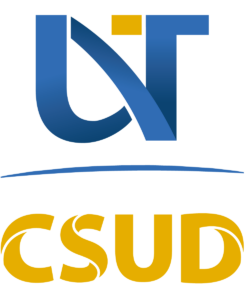General information about
Doctoral study programs at IOSUD-UVT
What do doctoral studies involve?
Doctoral studies represent the highest level of university education, providing the opportunity to conduct advanced research and contribute to the development of knowledge in a specific field under the supervision of a doctoral advisor. In Romania, doctoral studies have a duration of four years, with the possibility of extending them for an additional two years.
Doctoral studies involve:
- an advanced study program (courses, seminars, etc.), usually conducted during the first semester or the first year of the program;
- an individual research program, carried out throughout the entire duration of doctoral studies, which involves conducting original research leading to the completion of a doctoral thesis, under the guidance of a scientific advisor and a committee for academic supervision and integrity.
Scientific doctorate or professional doctorate?
- involves conducting original research, publishing the obtained results in scientific journals, and writing a doctoral thesis that encompasses the entire scientific process carried out within the chosen research topic;
- aims to generate original scientific knowledge that is internationally relevant, based on rigorous scientific methods;
- is primarily pursued by those aspiring to a career in research or higher education but can also be beneficial for professionals in practice; successful completion of the doctoral program leads to the awarding of the title of Doctor of Science (PhD);
- can be undertaken either as a full-time or part-time program.
- emphasizes testing innovative solutions and acquiring advanced expertise for solving practical problems;
- aims at solving practical problems through the application of the scientific method and systematic reflection;
- is primarily pursued by those who seek to deepen and enhance their professional expertise, while still allowing for the possibility of an academic career; in this regard, it represents a higher level of professional training compared to a professional master's degree;
- successful completion of a professional doctorate leads to the awarding of a doctoral title in the respective field of study (e.g., Doctor of Psychology (PsyD), Doctor of Education (EdD), Juris Doctor (JD), etc.;
- can be undertaken either as a full-time or part-time program, but most likely as a part-time program.
Full-time or part-time doctoral studies?
Types of funding for doctoral positions
- Romanian citizens,
- Citizens of other European Union (EU) or European Economic Area (EEA) states,
- Romanians from abroad residing in non-EU and non-EEA countries.
Funding is granted for the four-year duration of doctoral studies. If the studies are extended beyond this period, the funding status changes from tuition-free to tuition-based for the entire extended period.
Some of the students admitted to tuition-free positions will receive a monthly scholarship, which can be granted for up to four years, the standard duration of doctoral studies. This scholarship is subject to contractual requirements and specific milestones, such as earning a certain number of ECTS credits.
For more details regarding the value of the tuition fee, click here.
International joint doctoral program (Co-Tutelle)
A joint doctoral program (co-tutelle) is conducted under the supervision of two doctoral advisors, either from different institutions within the same country (national co-tutelle) or from universities in different countries (international co-tutelle). This type of doctoral program provides access to extensive academic resources, diverse expertise, and advanced research opportunities. The goal of a co-tutelle is to develop a collaborative research project and ensure the recognition of the doctoral degree in both institutions/countries.
Key Aspects of a Co-Tutelle:
- Bilateral agreement between universities – The institutions establish a formal partnership for the joint supervision of the student.
- Joint research plan – The student works under the guidance of two doctoral advisors and divides their time between both institutions.
- Mandatory mobility – The candidate must spend significant periods at both institutions, as outlined in the agreement.
- Thesis defense – The thesis is defended with the participation of both supervisors, in compliance with the regulations of both institutions/countries.
The West University of Timișoara encourages the pursuit of internationally co-supervised PhDs by giving priority to state-funded positions with scholarships, partially covering the costs associated with mandatory mobility periods, and prioritizing participation in ERASMUS mobility programs with partner universities.
UVT especially supports international doctoral co-supervision with partners from the UNITA Universitas Montium alliance, which includes universities from Switzerland, Italy, France, Portugal, Spain, and Ukraine that offer doctoral programs in similar fields and with topics compatible with those at IOSUD-UVT.
